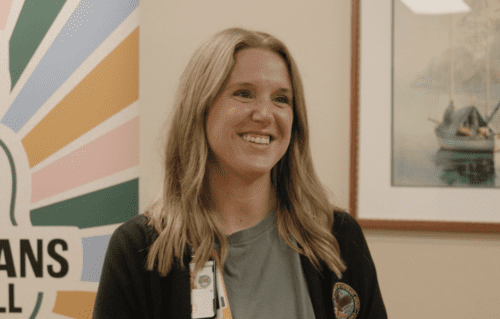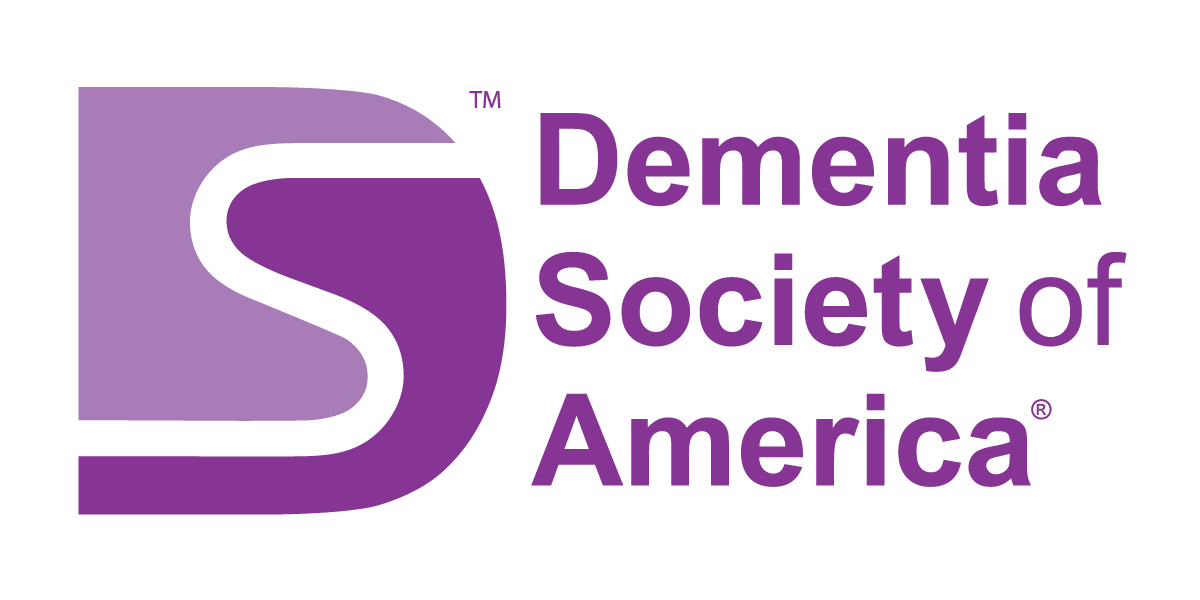
The Healing Power of Music for Patients Living With Dementia
An Interview with Linsey, a Recreation Therapist at the Murfreesboro VA in Tennessee
Could you introduce yourself and what your role is here?
My name is Linsey, and I’m a recreation therapist here on the CLCs. I do three different units. I have 1B, Hospice and East, and then I just help out on all the other units as well as needed.
What is the day in the life of a memory care patient at the VA like?
We get them up, they get ready for breakfast, and then the rec therapists have a variety of therapeutic groups that we offer throughout the day. Anything from sensory group, music group, a lot of tactile stimulation, memory groups, things like that. And then some of them are seeing PT, OT, speech therapy, doctor’s appointments. We really just try to keep them busy, so they’re just not sitting around. But yeah, it really varies day to day, but we always try to offer just a wide range of therapeutic groups for them to attend.
How would you say programs like Musician On Call help memory care patients?
It’s a beautiful thing. So Musicians On Call helps our memory care patients – for example, someone who has aphasia, dysphasia, and they don’t talk, you go in, show them Musicians On Call, the videos that y’all do every week, and you see them singing along, which is amazing to see because a lot of times you can’t have a conversation with them. But music, it just brings out the best in them.
You see them singing along, which is amazing to see because a lot of times you can't have a conversation with them. But music, it just brings out the best in them.
What specific benefits does music offer to memory care patients?
Music, to me, is everything to memory care patients, especially our hospice Veterans that we see as well. A lot of times they can’t get out of their room and do things, so just coming in and providing music, or if we have someone who is actively dying and they’re really anxious and you can tell they’re really anxious, coming in with music, you just feel a sense of calm come over the room. And like I said, just hearing Veterans sing along and you’re like, Ooh, where did that come from? Things like that.
Can you share about a specific time that you watched music have a significant impact on memory care patient’s emotional or cognitive state?
Recently, we had a live band come in and we had a Veteran who was just sitting there and we were like, oh, is he enjoying it? Is he not? And then all of a sudden he got up and he started dancing and he was singing, and I was like, woo, this is amazing to see. This is awesome. Again, we have an aphasia patient who just doesn’t speak and we play music and he’s singing along with everyone. Or even just them hearing music and the stories that they’re able to tell you from just listening to one song and then it sparks a memory reminiscing, and they just go on and on and on about the different memories and where they were when they heard this song and how old they were. So it really is an incredible thing to see.
Are there any specific types or genres of music that tend to resonate more with your patients, maybe familiar songs? And if so, why do you think that is?
Yeah, so some specific types of genres would be anything country, old country, they love old country, Hank Williams, Merle Haggard, Johnny Cash, Loretta Lynn, and I would say a lot of just 50, 60 seventies. That’s a lot of what we do here. And then for us younger staff members, we try to throw in some of that new country just to familiarize them with it. But definitely the sixties, seventies rock music too. We have a lot of, I would say, middle aged Veterans who love rock music.
Is it just because it was the music that they grew up listening to?
I think so, yeah. They’re able to tell you, oh, I went to the Pink Floyd concert this year on this date, and I’m like, oh, I bet that was a fun concert.
How has using music with memory care patients affected you as a caregiver? And in your opinion, what makes music such a powerful and universal medium?
So for me as a rec therapist, I incorporate music with everything that I do, whether it be just a sensory group where we’re using Legos to work on our tactile stimulation, because you may have a Veteran who doesn’t want to participate and be involved in that group, but music is powerful. You play the music and you can get them engaged. So seeing that, and for me, just seeing them sing along and enjoy themselves. Even something as small as the memories it brings about and the emotions that it brings about. I’ve had Veterans cry and I’m like, are you okay? And they’re like, no, it’s a beautiful memory that I’m thinking about. So that really touches my heart. So I would say I try to incorporate music in everything that I do. Music’s powerful. I don’t know how to say that. It’s just a powerful, powerful thing. So I really encourage people who haven’t seen what music can do and the benefits of music, just come into the VA. We’ll take you to a room and we’ll show you what it can do and how it touches your heart.
 About the Dementia Society of America
About the Dementia Society of America
It’s because of the Dementia Society of America’s support of Musicians On Call that programs like these can make such a big impact. Dementia Society of America® is an organization whose mission is to enhance the quality of life for those living with Dementia, caregivers, and the community and provides Dementia education and resources. Through performances in MOC’s Bedside and Virtual programs, and personalized playlists with MOC’s Streaming program, Musicians On Call is dedicated to using the healing power of music to improve the lives of those navigating the challenges of cognitive decline.